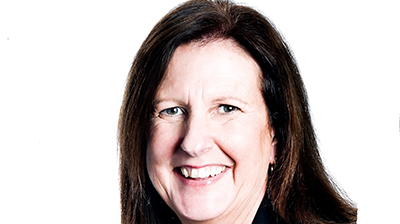
Motor finance broker earnings vary significantly across the various commission models, hinting at a strong incentive to increase the rate of interest which customers pay to earn more commission, says the UK Financial Conduct Authority (FCA).
As such, the FCA has introduced a new set of rules in an attempt to curb the practices following its review of the £64 billion motor finance market.
Identifying four main types of commission structure – increasing and reducing difference in charges (DiC), scaled, and flat fee commission – the organisation found that the difference between the average and highest commission was around £2,000 for DiC and scaled models, compared to £700 for the flat fee model.
Furthermore, it estimated that some 560,000 customers of the firms in its sample under review could be paying in £300 million more in total in interest costs compared to flat fee models.
The FCA has made it clear that all discretionary commission models will be subject to the ban. Including any arrangement where a commission, fee or other financial consideration is payable by a lender to a broker in connection with the regulated credit agreement, and where this is wholly or partly affected by the interest rate negotiated by the broker.
Sushil Kuner, principal associate of Gowling WLG, explained: “By including ‘financial consideration’, the FCA is looking to ban any practice where a broker is rewarded for adjusting the price a customer pays for motor finance. The FCA is intending to break what it perceives to be a strong link between customer interest rates and broker earnings in order to decrease financing cost for consumers and hopes that its wide definition of discretionary commission models will prevent firms from being remunerated on other aspects of the total charge for credit.”
A small number of commission models and commercial arrangements are not subject to the ban including any linked to the loan size, interest rates varying by product type, brokers negotiating different commission levels between lenders, and lenders pricing for risk.
The FCA’s new rules will come into force on 28 January 2021, and are set to have three prominent changes to the existing disclosure rules. These include:
- Firms should disclose the nature of commission in their financial promotions and tailor the disclosures according to whether and how much commission can vary depending on the lender, product or other permissible factors;
- The existence and nature of commission arrangements where the commission varies depending on the lender, product or other permissible factors should always be disclosed prominently.
- The disclosure must also cover how the arrangements could affect the price payable by the customer.
Life in the vanguard of pricing models
In response to the FCA’s decision to change dealer finance, MotoNovo announced the launch of its risk-based pricing model ‘MotoRate’ in June this year. According to the company, more than 1,000 dealers have switched to the pricing model despite it only having been available for 50 days.
Mark Standish (pictured), chief executive officer of MotoNovo, said: “The FCA’s changes to dealer finance will be a dominant theme for motor retailers as we move towards the 28 January deadline to change. MotoNovo is in the vanguard of positive change and as well as being compliant, the overall responses from dealers has been that the new approach has been very positive for sales and customer feedback.
“Dealers certainly like the impact it is having on their businesses and how they can compete with personal loans on price and transparency. An overall 40 per cent growth in finance penetration is a very powerful reason for switching and this is exactly what we have seen.”
According to MotoNovo, the importance of compliance with FCA requirements has proved to be crucial to MotoRate’s momentum, especially when combined with the positive impact on dealers’ finance penetration levels.
Offering a compelling case study, Jamie Tyrie, director at JT Vehicles South Lakes, added: “MotoRate has allowed us to offer our finance with confidence. Led by the very competitive rates and high acceptance levels, we can compete with banks on price and beat them on convenience. We are making it easier for customers to choose us for their car and finance because the whole process is fast and transparent.”






